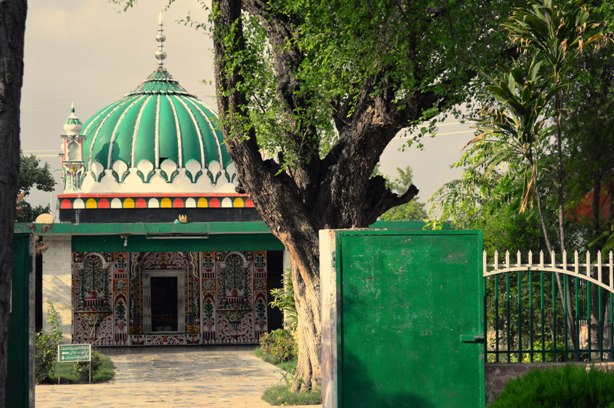
I live in a region where practices from Arab mysticism are given the same respect as Buddhism gets in China or India. Solutions might differ in technique, but all of us share the same spiritual ailments—more or less.
The first lesson my spiritual teachers tried to teach me was about ego.
I was pursuing my undergraduate degree in psychology at that time and getting accustomed to the concept of ego by Freud. To be honest, it wasn’t really a great idea to learn about such extreme variations of ego simultaneously, and as a result I could comprehend neither concept.
It wasn’t until I came across the following story that I understood the concept of ego in Arab mysticism.
Once, there was a renowned Sufi teacher who was extremely selective in choosing his students. He would ask his students to travel far and wide for his secret, and after so much traveling the students would always end up in some insignificant place with no secrets in their brains and souls. Sometimes he would ask them to run errands for him and even clean up the excretions his animals made. The students—including royal officials—tired themselves by mopping the floors of the shrine where he stayed, they tried their best to run every errand, which was in contradiction to their luxurious life and inherent Arab pride. But, no one could go on for long with the Sufi, and except for one person, people would give up after a certain period of time.
The Sufi never taught anything to the student who never gave up, but uttered these words to him in his last moments:
“The secret is to serve mankind unconditionally, and that would be enough for your ego to die.”
What he said is the first lesson in Arab mysticism. It is the foundation of Sufi Psychology.
Arab mysticism understands all our spiritual ailments through the concept of ego. It believes that all our spiritual weaknesses are a result of a huge ego that doesn’t like being neglected and leads to narcissism. From anxiety to aggression, Arab mysticism connects everything with the false glorification of ego.
This is what the Sufi teacher tried to do. He chose everyone as his student, but people could not perceive it. He taught them through actions, but all of them considered words as the only source of knowledge.
He wanted them to experience death before death.
Arab mysticism promotes the philosophy of dying before our death. Almost all doctrines of Arab mysticism call this process فنا, or Fana.
The philosophy of dying before our physical death urges us to minimize our egos and narcissistic tendencies. It believes that purity of soul is negatively affected by narcissism and ego.
The philosophy does not suggest we kill ourselves—our physical body—but simply demands that we crush our inflated ego so that we can easily create a sense of oneness with the universe.
Arab mysticism assumes that only a humble human being can experience the most pure forms of oneness with the universe. The humility of a human is compared to that of a seed buried deep in the soil: The seed always stays in the background, while we marvel at the juicy fruits.
The seed is so in love with its unseen humility that it doesn’t care about all the praise the fruits receive. It doesn’t care about the status quo of those who consume its fruits and serves everyone equally.
For humans, it is difficult not to be lured by the spotlight, appreciation and attention. It is difficult to be unconditional the way this Arab philosophy demands. But, a great concept in psychology confirms that we have the potential to reach beyond the superficial.
This concept is known as intrinsic motivation.
Intrinsic motivation enables an artist to create their art only for the love of the craft. The artist craves a union with the universe through art. Intrinsically motivated artists rarely create anything for appreciation, encouragement, money, social prestige or attention.
This intrinsic motivation is what فنا (Fana) is all about.
Every human act is devoid of social prestige and attention. The soul is like a freshwater fall serving everyone equally to the best of its ability. The soul doesn’t care whether or not the consumer appreciates its beauty, sacrifice or freshness. The beauty or improvement of soul does not depend on appreciation given by the consumers.
So, فنا (Fana) is all about caring deeply for something outside ourselves.
It is learning to care without any expectation or incentive.
It is about giving space to something else inside our hearts and gradually increasing the space.
It’s about devoting our selves more and more to the universe.
Arab Mystics motivate us to die before we physically die with this beautiful philosophy:
“Meet every living being with the best of your humility because you never know in which disguise you may find the Divine/God.”
When the majority of my actions were motivated by caring for people without incentive, I started to comprehend the meaning of ego.
It feels like being at home whenever there is more and more of the universe inside me.
We need to prioritize the benefit of others before our own, or we won’t be able to save ourselves from the power-hungry leaders and opportunists in this world. They thrive on our inability to stand up for what is right. They feast on our fears.
Arabs have long abandoned the Sufi practices of their ancestors, but we can adapt this practice of فنا (Fana) for the benefit of our world. All it asks of us is a humble attitude and a deep care for one another, so that all of us can pass the storms that so frequently turn our world into a red, violent place.
This death before physical death can not only transform individuals, but also the world that we live in.
The act of sacrificing our ego allows us to develop our divine gifts without caring about external factors. The development of spirituality is not dependent on the levels of appreciation given by people or society.
This is the kind of development our souls have been craving for so long. Private, secret and mysterious soul is all about the purity inside, and this purity doesn’t get naked in front of anyone but our own self.
~
Relephant Read:
Why Mysticism Matters.
~
Author: Zaufishan Qureshi
Editor: Toby Israel
Photo: Author’s Own
~






Read 4 comments and reply